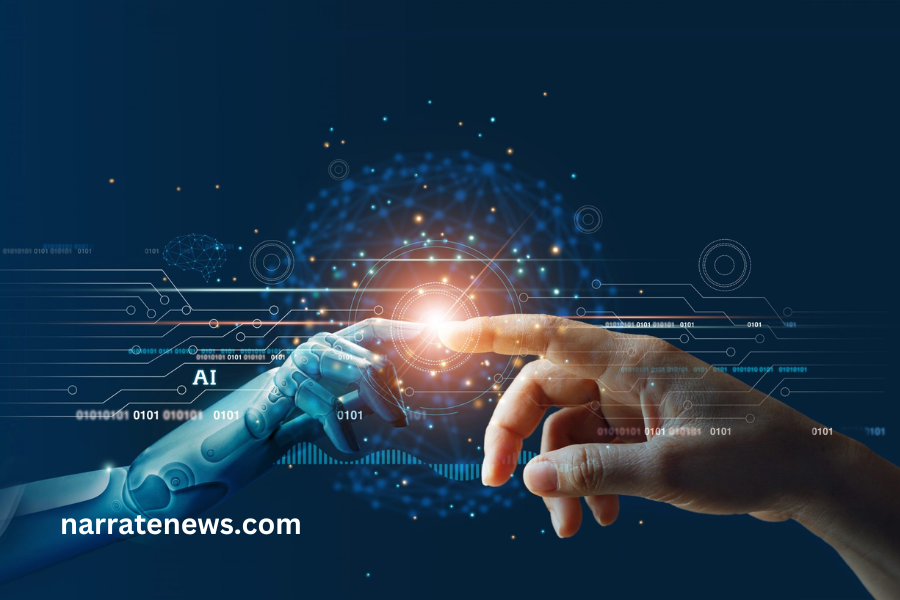
Harnessing the Positive Impact of Artificial Intelligence
Artificial intelligence (AI) has emerged as a transformative force reshaping industries, revolutionizing processes, and enhancing human capabilities. While discussions surrounding AI often highlight concerns about job displacement and ethical considerations, it’s crucial to recognize the myriad positive impacts that AI brings to society. In this comprehensive article, we’ll explore the multifaceted ways in which AI is making a positive difference, from healthcare and education to environmental sustainability and beyond.
Positive Impact of Artificial Intelligence
Revolutionizing Healthcare
Precision Medicine:
AI algorithms analyze vast amounts of patient data to identify patterns, predict disease progression, and personalize treatment plans, leading to more effective and targeted healthcare interventions.
Medical Imaging:
AI-powered medical imaging technologies, such as MRI and CT scans, enhance diagnostic accuracy by detecting anomalies and assisting radiologists in interpreting complex images, ultimately improving patient outcomes.
Drug Discovery:
AI accelerates the drug discovery process by simulating molecular interactions, predicting potential drug candidates, and identifying novel therapies for diseases, paving the way for faster and more efficient drug development.
Transforming Education
Personalized Learning:
AI-powered educational platforms adapt learning materials and instructional strategies to students’ individual needs, preferences, and learning styles, fostering personalized and engaging learning experiences.
Tutoring and Assessment:
AI-driven tutoring systems provide real-time feedback, guidance, and support to students, while automated assessment tools streamline grading processes and provide educators with valuable insights into student performance.
Accessibility and Inclusion:
AI technologies, such as speech recognition and natural language processing, improve accessibility for students with disabilities by enabling text-to-speech and speech-to-text capabilities, ensuring equitable access to educational resources.
Advancing Environmental Sustainability
Climate Modeling:
AI models analyze climate data, predict environmental trends, and simulate the impact of human activities on ecosystems, facilitating informed decision-making and policy development to mitigate climate change.
Resource Management:
AI optimizes resource allocation and utilization in industries such as agriculture, energy, and transportation, reducing waste, conserving natural resources, and promoting sustainable practices.
Conservation and Biodiversity:
AI-powered monitoring systems track wildlife populations, detect environmental threats, and identify conservation priorities, aiding conservation efforts and preserving biodiversity in ecosystems worldwide.
Enhancing Cybersecurity
Threat Detection:
AI algorithms analyze network traffic, detect anomalies, and identify potential security breaches in real-time, enabling organizations to proactively respond to cyber threats and safeguard sensitive data.
Fraud Prevention:
AI-powered fraud detection systems identify fraudulent activities, such as payment fraud and identity theft, by analyzing transaction patterns, detecting anomalies, and flagging suspicious behavior, protecting businesses and consumers from financial losses.
Secure Authentication:
AI enhances cybersecurity measures by implementing biometric authentication methods, such as facial recognition and fingerprint scanning, which provide robust and secure identity verification for access control and authentication purposes.
Fostering Innovation and Economic Growth
Accelerating Research and Development:
AI accelerates innovation by automating repetitive tasks, analyzing large datasets, and uncovering insights that drive scientific discovery, technological advancements, and breakthrough innovations across industries.
Entrepreneurship and Startups:
AI empowers entrepreneurs and startups to disrupt traditional industries, launch innovative products and services, and create new business models, driving economic growth, job creation, and competitiveness in the global marketplace.
Global Collaboration and Knowledge Sharing:
AI facilitates global collaboration and knowledge sharing by connecting researchers, experts, and innovators from diverse backgrounds, fostering interdisciplinary collaboration, and advancing collective efforts to address complex challenges facing humanity.
Addressing Ethical and Social Implications
Ethical AI Design:
While AI offers immense potential for positive impact, it also raises ethical considerations related to bias, privacy, and accountability. Ethical AI design principles, transparency, and governance frameworks are essential to ensure responsible and equitable AI deployment.
Human-AI Collaboration:
Emphasizing human-AI collaboration and augmenting human capabilities with AI technologies can maximize the positive impact of AI while addressing concerns about job displacement and societal impact, fostering a symbiotic relationship between humans and machines.
Inclusive and Equitable Access:
Ensuring inclusive and equitable access to AI technologies and opportunities is essential to bridge the digital divide, reduce socioeconomic disparities, and empower individuals and communities to benefit from the positive impacts of AI.
Conclusion
Embracing the Potential of AI:
As we navigate the transformative potential of AI, it’s imperative to harness its positive impact while addressing ethical, social, and economic considerations. By leveraging AI responsibly and ethically, we can unlock new possibilities, drive sustainable development, and create a brighter future for humanity. Let us embrace the promise of AI as a powerful tool for progress, innovation, and positive change in the world.


